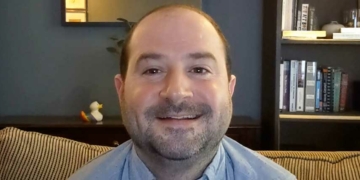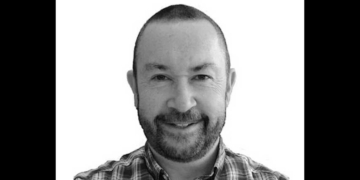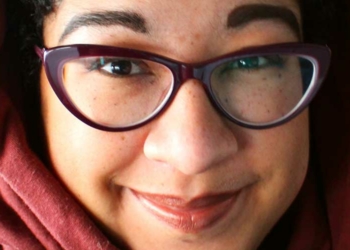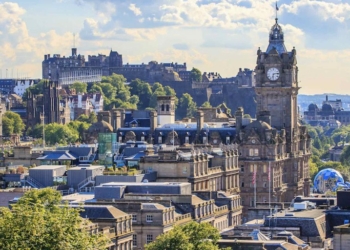My favourite scene in the 2014 film Pride is lesbians singing, to the tune of Solidarity Forever, ‘Every woman is a lesbian at heart/Every woman is a lesbian at heart/Every woman is a lesbian at heart…’
Reggie, a gay male character looks aghast: ‘You can’t possibly say that every woman is a lesbian.’ The women beg to differ, suggesting that Reggie’s mum might even be a bit Sapphic.
This was clever scripting, because the arguments about whether or not there exists a genetic basis for same-sex attraction or not is often between lesbians and gay men. Or rather lesbian feminists and the more conservative type of gay man. I am proud of being a lesbian, and certainly wouldn’t want it any other way. When I came out in the 1970s, I was regularly asked, ‘If there was a drug that would make you straight, would you take it?’ The assumption was that being a lesbian was the problem as opposed to anti-gay prejudice. I would answer them by suggesting we look at ‘curing’ the bigots.
I love being a lesbian and consider it way preferable to heterosexuality. That is what I mean when I say I am a political lesbian.
I do not seek to be merely ‘tolerated’ by heterosexuals. There is no kink in my gene that resulted in my sexual orientation, and nor is my brain coloured with stripes of the rainbow flag.
I love being a lesbian and consider it way preferable to heterosexuality.
That is what I mean when I say I am a political lesbian.
I made a conscious and happy choice to be a lesbian and reckon that when we have less anti-lesbian bigotry, more women will be free to do so. But when I use the word ‘choice’, I don’t mean in the same manner that you choose your pasta. Rather, I am suggesting that if we were not under such extreme pressure to be straight, and if we did not fear the inevitable prejudice and bigotry, we might be more open to falling for someone of the same sex.
We are lesbians because we desire other women and see the huge advantages in sharing our lives with women.
Political lesbianism is not about straight women claiming to be lesbians to make a point.
In recent years, since the backlash against feminism and the colonisation of lesbian politics by queer theorists, many women seem to think that being political about being a lesbian is ‘fake lesbianism’ done for the sake of punishing men.
Lesbianism is a political act – it doesn’t mean pretended desire, and nor does it mean straight women appropriating a lesbian culture or identity. Political lesbianism is not about pretending to not be attracted to men as an act of feminist defiance, but rather gives women the option of asking themselves if they have been railroaded into heterosexuality.
Claiming that lesbians are ‘born this way’ can be a barrier to many women coming out in later life, having been previously heterosexual. It ignores the fact that social conditioning can result in women ignoring or oppressing desires for other women and seeing it as a ‘passing phase’. It can also lead to the opinion that only a small number of women, those women with a kink in the genes, have the potential to love and desire other women.
I love the sense that I had chosen my sexuality. Rather than being ashamed or apologetic about it, as many women are, I can be proud and see it as a privilege.
The ’born this way’ explanation for lesbianism is popular with many heterosexuals because it reassures them that there is no danger that it will rub off on them. I love the sense that I had chosen my sexuality. Rather than being ashamed or apologetic about it, as many women are, I can be proud and see it as a privilege.
Those that refuse to accept the crazy, unsubstantiated theory of the gay gene and refuse to accept that sexuality is innate are accused, by other gays, of playing into the hands of the enemy. When the actor Cynthia Nixon said to a journalist at the New York Times Magazine that she ‘chose’ to be a lesbian following a perfectly happy heterosexual past, she was vilified and bullied into apologising. A few weeks later she withdrew her comment and said she must have been born with ‘bisexual potential’.
But later she hit back against her critics saying: ‘Why can’t it be a choice? Why is that any less legitimate? It seems we’re just ceding this point to bigots who are demanding it, and I don’t think that they should define the terms of the debate.’
When lesbians are bullied into believing that our sexuality is written in the genes it results in a distinct lack of pride. Every woman can be a lesbian – but it’s fine if they choose not to be.
Julie Bindel is a journalist, author and feminist campaigner. She came out as a lesbian in 1977 aged 15 and has never looked back.
























If lesbian is just a political label divorced from being a homosexual then I have no particular issue with straight women or men being lesbians, politics change, and by this definition lesbians can just be more accepting ... I have no commonality with this definition of lesbianism. The lesbians I know are not just appropriating a homosexual identity, though their politics may flow from their sexual orientation. Being gay is an innate characteristic for me, my pride is because I leaned to accept and love myself. The lack of choice is what makes it pride for me, rather than a consumerist identity I bought and now parade around to show others how different and exciting I am. My pride is deep and internal, hard fought for, and I do not agree that a lack of choice diminishes it, it forged it.
I've heard variations of this argument since the 1970s. Some people have deep, politically-based objections to the idea that Gay people were born Gay. I don't believe in a "Gay gene", but neither do I believe that every woman can be a Lesbian, or every man can be Gay. That's simply not the case! And that "choice" argument is the slippery slope that's led us directly into the swamp of bisexual erasure and "fluid" gender and sexuality. You can't politicize your desire. Your sexual orientation is what it is, and it doesn't change based on who you decide to go to bed with. Just ask Holly Near, who was never a Lesbian despite how some folks want to characterize her relationships.